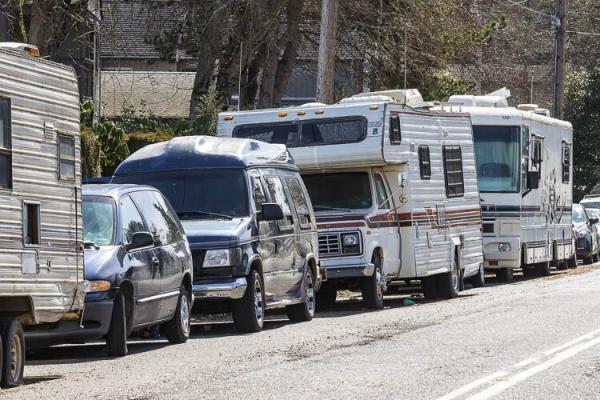The proposed plan provides strategies to respond to the most urgent impacts to the housed and unhoused in Vancouver
VANCOUVER – On Monday, Vancouver City Council endorsed piloting a new plan to address the crisis of homelessness in Vancouver – including its impacts on community health, safety, and cleanliness.

The proposed plan provides strategies to respond to the most urgent impacts to the housed and unhoused in Vancouver, including: garbage, trash and clutter in public spaces; residents living in tents/vehicles in public rights-of-way; and improving livability and health for the unhoused, including the removal of barriers to accessing services.
“The Vancouver City Council is committed to taking action to address the significant challenges homelessness has presented in our community,” said Vancouver Mayor Anne McEnerny-Ogle. “This plan is consistent with the council’s values to ensure a healthy, thriving, equitable community that supports the needs of residents and maintains the safety and security of our neighborhoods. We are creating strategies that respond to the urgent needs of everyone impacted by these challenges and this plan moves us in the right direction.”
Key strategies include:
- Establishment of small, supported campsites throughout the city to mitigate negative impacts to neighborhoods and provide unhoused residents the services they need most on site.
- Creation of more Safe Parking Zones to meet increasing demand for safe and well-maintained places for those living in vehicles/RVs to park. The concept is based on the city’s first successful Safe Parking Zone (1504 N.E. 138th Ave.) site established in April 2020.
- Expansion of the Talkin’ Trash program or development of another similar litter/waste cleanup program to expand capacity for increased trash collection and incorporated outreach to connect unhoused residents with services.
- Expansion of the city’s existing Homeless Assistance and Response Team (HART) to proactively engage unhoused residents with holistic healthcare services through a contract with Columbia River Mental Health.
Based on feedback received from city council, city staff will now begin broad community outreach to seek feedback and ideas regarding the development of a pilot program for the supported campsite concept. This feedback will be used to develop a campsite plan, including potential site locations and timelines for implementation.
The plan will build upon the city’s ongoing efforts to address homelessness impacts, such as providing camp toilets and handwashing sites, mail services and ongoing camp cleanups. Since March 2020, the city has removed more than 48 tons of solid waste from camps.
It also builds upon the city’s ongoing financial support to create affordable housing and shelter projects, including the taxpayer funded Affordable Housing Fund approved in November 2016 (www.cityofvancouver.us/affordablehousingfund) and the city’s recent $2.5 million contribution toward the purchase of Bertha Cain Baugh Place (9201 N.E. Vancouver Mall Drive). The 63-room, non-congregate shelter was established by Clark County Community Services and the Vancouver Housing Authority and will be operated by Catholic Community Services of Western Washington.
While the city’s plan addresses the immediate impacts to Vancouver, it does not replace Clark County’s efforts as the lead agency in working to end homelessness in the region. Both the city and county participate in the Joint Executive Group on Homelessness, which serves as a collaborative policy forum to identify possible gaps and opportunities for further coordination and investments to address homelessness and its impacts.
“While Clark County remains the lead agency in addressing the systemic issue of homelessness in our region, the city’s plan provides us with a roadmap to begin alleviating the negative impacts brought on by this crisis,” said Jamie Spinelli, City of Vancouver homeless response coordinator. “We are acting with urgency to help our city become a cleaner, safer, healthier and more resilient place for everyone.”
Spinelli was hired in February 2021 to develop and implement the city’s response to homelessness and manage the city’s HART program, which provides outreach, assessments, and referrals to the appropriate services for individuals experiencing homelessness.
The community is invited to view the full homelessness response plan, sign up for updates, share ideas/feedback and ask city staff questions at https://www.beheardvancouver.org/homelessness-response.
Information provided by city of Vancouver.




